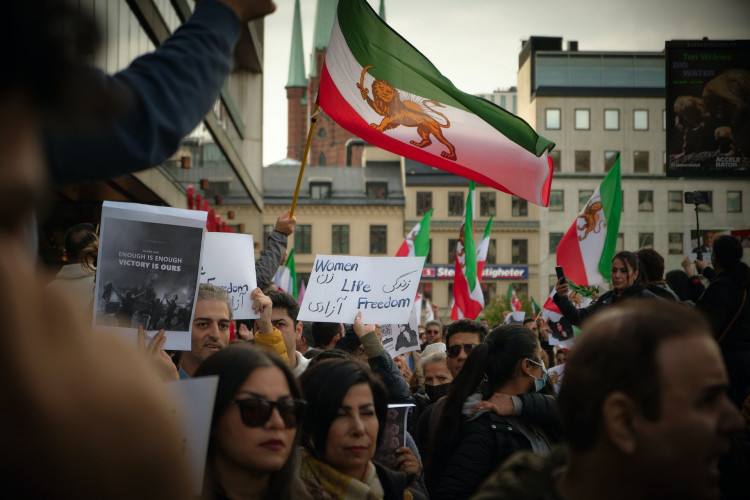In response to the protests that have rocked the regime since September, Iran carried out its first known hanging on Thursday (Dec. 8), prompting an international outrage and warnings from rights organizations that more hangings are due to follow.
The protester's name was Mohsen Shekari, according to both the semi-official Tasmin news agency and the judiciary-affiliated Mizan Online. After stabbing a Basij paramilitary at a protest in Tehran on Sept. 23, he was reportedly found guilty of "waging war against God."
According to Mizan Online, Shekari was given a death sentence on Oct. 23 and was hanged on Thursday morning. It was the first execution associated with the protests that were made public by state media.
Iran Human Rights (IHR), a non-profit human rights organization with members both inside and outside the country, has urged for a robust international response to the execution.
"His execution must be met with the strongest possible terms and international reactions. Otherwise, we will be facing daily executions of protesters who are protesting for their fundamental human rights," the group's director Mahmood Amiry-Moghaddam told CNN.
Amnesty International was "horrified" by the execution, which came after Shekari was convicted in a "grossly unfair sham trial."
Human rights groups have warned that at least a dozen more people face execution after being sentenced to death in connection with the protests.
Demonstrations have rocked Iran for over three months, following the death in detention of Iranian Kurdish woman Mahsa Amini, 22, after her arrest by morality police in Tehran for allegedly violating the country's strict hijab clothing requirement for women.
The protests represent the most serious challenge to the Islamic republic since it was created after the Shah was deposed in 1979.
Actions taken during the primarily nonviolent protest movement have included taking off and burning headscarves in public, singing anti-government chants, and challenging security personnel.
According to rights organizations, protesters used a relatively new technique by organizing three days of statewide strikes up until Wednesday, which resulted in the closure of businesses in several significant cities, including Tehran.
According to an updated death toll released by IHR on Wednesday, the security forces' response to the unrest included a crackdown that resulted in the deaths of at least 458 individuals, including 63 children.
On Tuesday, a court sentenced five more people to death by hanging for the killing of a Basij member, bringing the total number of people sentenced to death in connection with the protests to 11.
Meanwhile, Iran's Supreme Leader has praised the Basij, a wing of Iran's Revolutionary Guard, for its role in the crackdown, labeling the protesters "rioters" and "thugs" backed by foreign forces.





